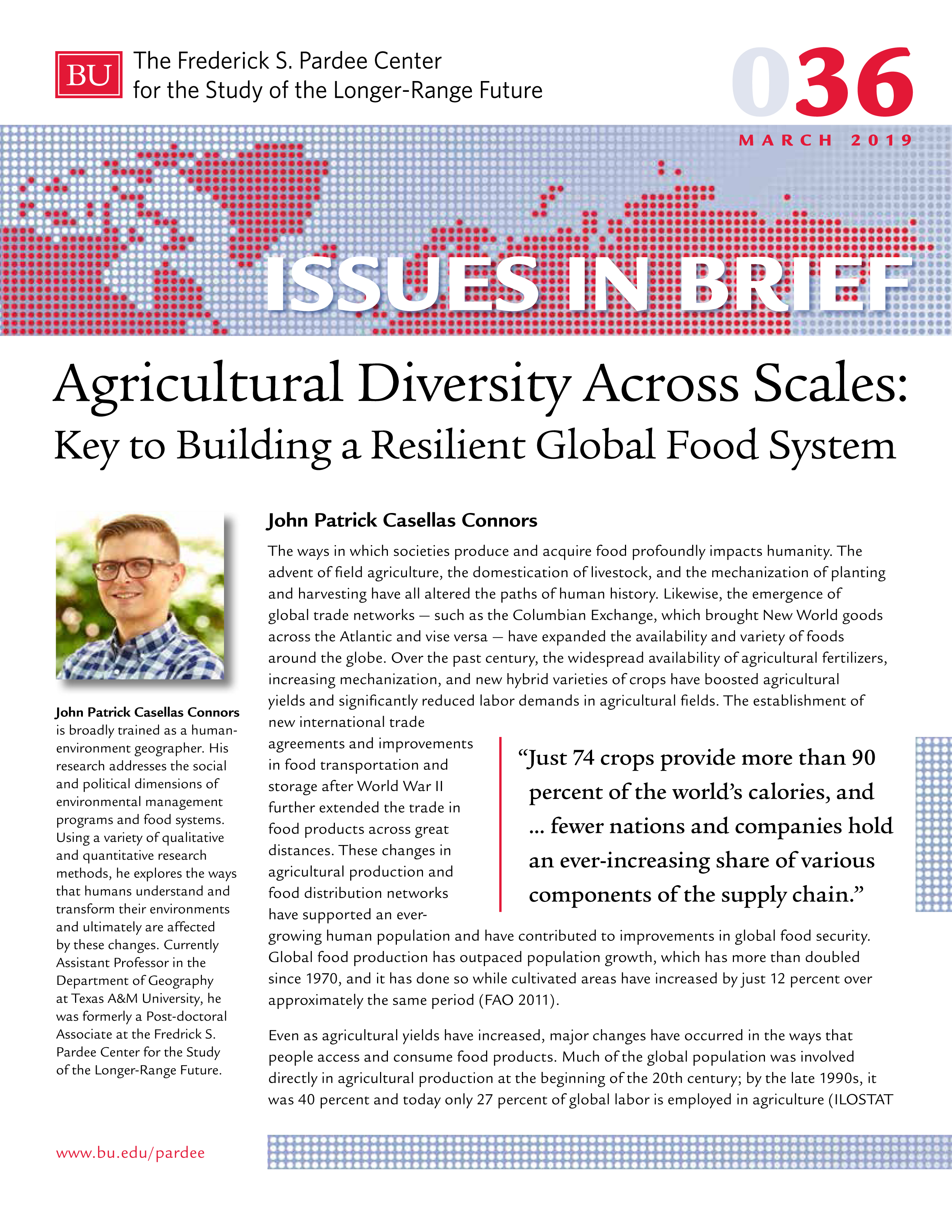Issues in Brief, No. 36, March 2019
Agricultural Diversity Across Scales: Key to Building a Resilient Global Food System
 By John Patrick Casellas Connors
By John Patrick Casellas Connors
March 2019 (8 Pages)
Download PDF
Over the past century, changes in agricultural production and food distribution networks have supported a rapidly growing human population and contributed to improvements in global food security. However, crop diversity has decreased dramatically, with just 74 crops now providing more than 90 percent of the world’s calories. Fewer countries and companies control an ever-increasing share of food production systems, and the genetic diversity of the world’s crops is eroding. In this Issues in Brief, John Patrick Casellas Connors explores the new shared vulnerabilities resulting from the ongoing transformation of the global food system and discusses the role of diversity in supporting food security across scales, particularly in the context of global climate change.
John Patrick Casellas Connors is broadly trained as a human-environment geographer. His research addresses the social and political dimensions of environmental management programs and food systems. Using a variety of qualitative and quantitative research methods, he explores the ways that humans understand and transform their environments and ultimately are affected by these changes. Currently an Assistant Professor in the Department of Geography at Texas A&M University, he was formerly a post-doctoral associate at the Frederick S. Pardee Center for the Study of the Longer-Range Future.